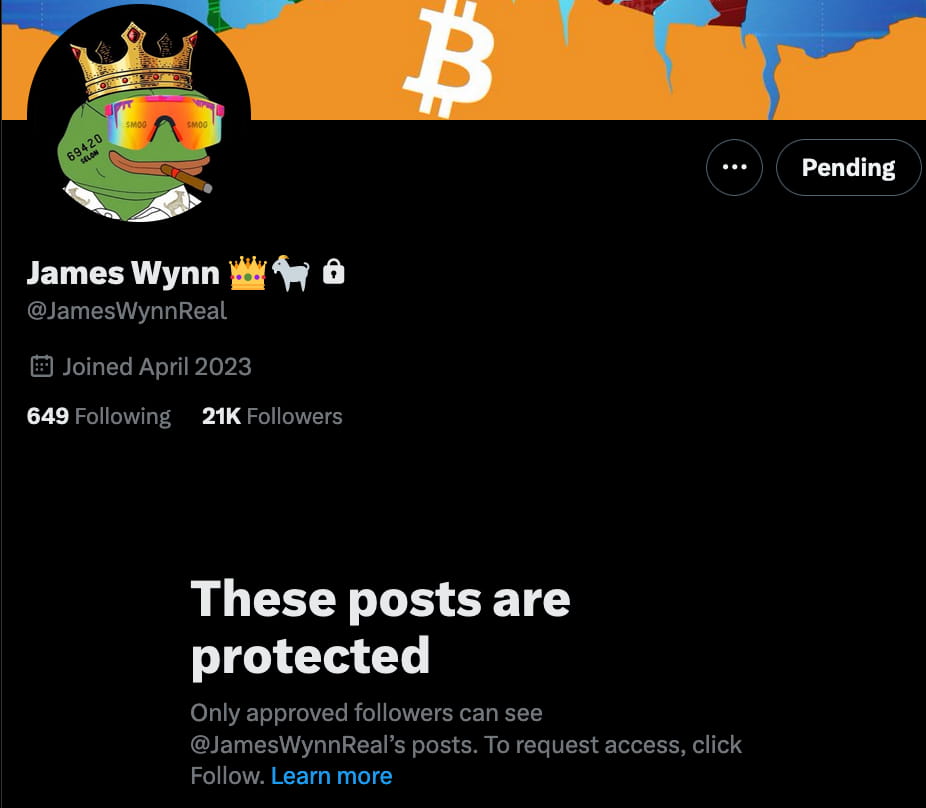In the vast and still experimental cryptocurrency market, influencers and enthusiasts often share insights into their favorite cryptocurrencies. Usually, they will hold these assets as personal investments—a normal behavior expected from someone enthusiastic about an asset.
However, influencers can use their influence to lure exit liquidity for tokens they hold but do not plan to keep in the long term. This is what recent on-chain and social activities suggest could have happened to a known meme coin trader.
Notably, Lookonchain spotted a possible divergence between words and on-chain activity from James Wynn (@JamesWynnReal) on X on May 25.

0xb46b036c6ed411d86bdab8fc0990af9a681b5e1d2635efd8f539fd6c573afd5c. Source: Etherscan
Interestingly, the influencer then posted that “PEPE is still severely undervalued” one hour after the deposit. According to screenshots taken and shared by Lookonchain, James Wynn continued with two other bullish-biased posts related to PEPE.
jwynn.eth(@JamesWynnReal) deposited 491B $PEPE($7.54M) into #Binance before saying that $PEPE is still severely undervalued.He previously spent $8,524 to buy 2.83T $PEPE($44.4M currently) and made huge profits on $PEPE.He has 476.8B $PEPE($7.48M) left currently. pic.twitter.com/9flTGYpNxw
— Lookonchain (@lookonchain) May 25, 2024These posts are currently inaccessible because the trader locked his account on X.

James Wynn’s “these posts are protected” warning. Source: X / Finbold
Depositing from a self-custody wallet to crypto exchanges usually means an intention to sell and is a commonly used indicator.
Previously, Wynn spent $8,524 to buy 2.83 trillion PEPE, which equals $44.4 million at current prices. The influencer has been partially selling this amount over time. Now, his most recent activity dumped nearly half of the remaining reserves held at jwynn.eth.
As of this writing, the account still holds 476.8 billion PEPE, worth approximately $7.48 million.
PEPE, meme coins, and the Greater Fool Theory
Meme coins, such as PEPE, often lack fundamental value and are driven by hype and social media buzz. Traders who buy these coins are essentially gambling in the hope that someone else will buy them at a higher price.
This mentality aligns with the “Greater Fool Theory,” which suggests that profits can be made by buying overvalued assets and selling them to a “greater fool.”
Moreover, this theory highlights the inherent risk of such investments, as the market eventually runs out of willing buyers. When the hype dies down and demand dwindles, traders can be left holding worthless cryptocurrencies, leading to substantial financial losses.
In closing, this recent activity demonstrates the importance of not blindly following crypto influencers to make investment decisions.
Disclaimer: The content on this site should not be considered investment advice. Investing is speculative. When investing, your capital is at risk.















